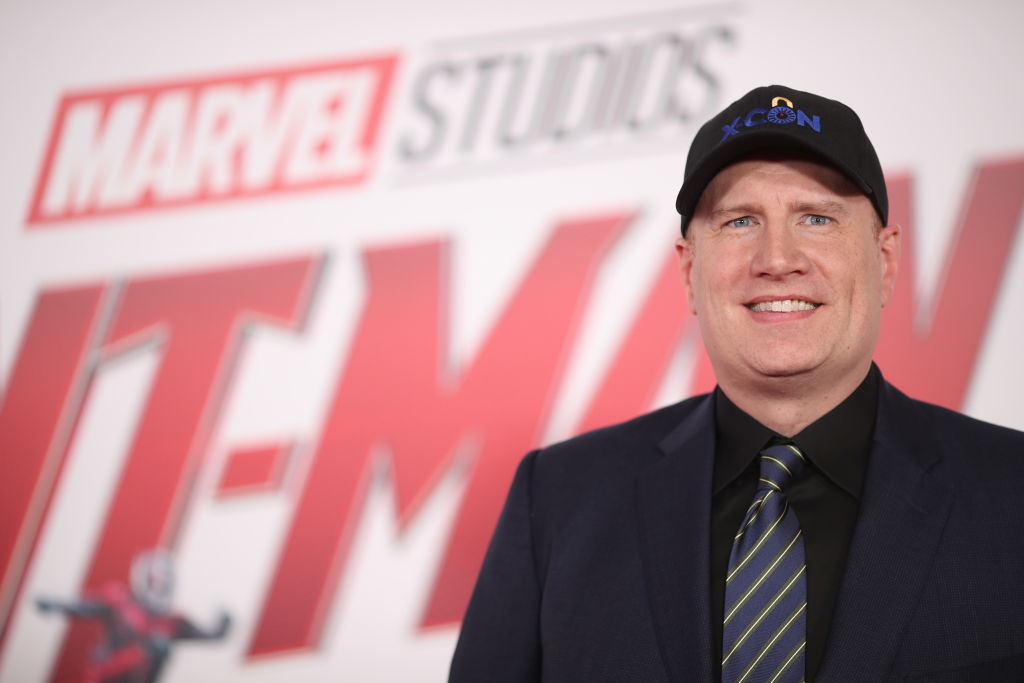
- Interviews
HFPA in Conversation: The Sky is Not the Limit for Kevin Feige
As a boy in New Jersey, Kevin Feige waited for Fridays – that was his movie night. Now, as a film producer, he is creating movie nights for people around the world.
“I started my internship at the Donner Company on the Warner Bros. lot in the spring of 1994. I was answering phones, getting lunches and standing for hours in front of a Xerox machine. And here’s the truth, I was happy, I was excited, I just wanted to be in this business. And I am still happy and particularly now on the release of Captain Marvel,” Feige tells HFPA journalist Anke Hofmann.
His first job on a superhero movie was almost 20 years ago when he was an associate producer on X-Men. “Lauren Shuler Donner was very gracious and started to invite me into production meetings. I knew all the characters, I knew primarily the animated series. It was then that I started reading, really in detail, the comics. I started to realize so many of the questions that people were struggling with as they were developing the script were right there in the comic books.”
Since 2007 he has been the president of Marvel Studios. After the first Iron Man movie in 2008, he announced several more movies to come: Iron Man 2, Thor, Captain America, and The Avengers. At the time he hoped and dreamed they were able to create an interweaving universe. “Our idea as shown in the tag scene of Ironman I with Sam Jackson walking out and saying to Tony Stark, ‘you’re part of a bigger universe, you just don’t know it yet.’ He also in that scene says, ‘you think you’re the only superhero in the world.’ And now that Captain Marvel will be out and we will see the adventure he went on in 1995 with Carol Danvers, now we know what superhero he was talking about. We know what other superheroes were in the world that he knew about even though Tony Stark and the audience didn’t know at that time.”
The audience has traveled with Marvel movies to places like Thanos, Wakanda, Kree Empire, and the Skrulls.“Comic book writer Stan Lee was very progressive and very inclusive in the early ’60s. So much of what we’ve done is based on the pioneering work that had been done in the past in the comic books, not the least of which is the creation of the Black Panther character in the 60s. It was amazing to bring this very intelligent African man into the comics and having him be wealthier and more intelligent than the biggest heroes of the day. It always feels like, in doing tribute to comics, we wanted to bring this kind of diversity and inclusiveness to the films.’
The merger between Walt Disney and 20th Century Fox will open up new possibilities in the future. “Marvel has never had access to all of their properties and all of their characters in the film business and now we’ll be as close to that as ever. That is full circle certainly for me personally. I started in X-Men films, was around some of those early Fantastic Four films. It allows us to grow and surprise. And that’s just exciting.”
Listen to the podcast and hear how he learned about the Marvel Universe; what comic book movie does he considers an archetype of the genre; when he thought he had achieved the greatest level of success; when was the first time he worked with Tommy Lee Jones and Don Cheadle; when he worked with Tom Hanks and Meg Ryan, what are the biggest challenges for Marvel movies at the moment; what the Oscar nomination meant to him; what Marvel did differently in the Black Panther production; how his daughter affects the movies he is making; how Marvel celebrates Stan Lee in Captain Marvel

